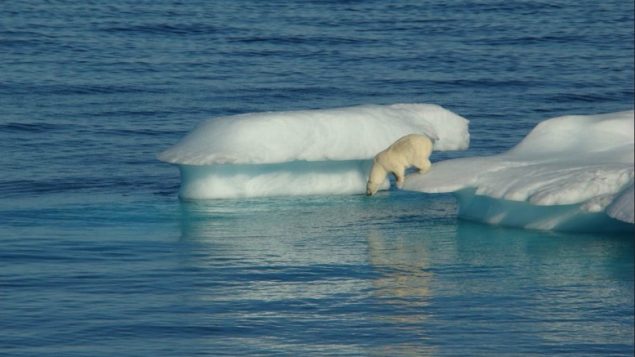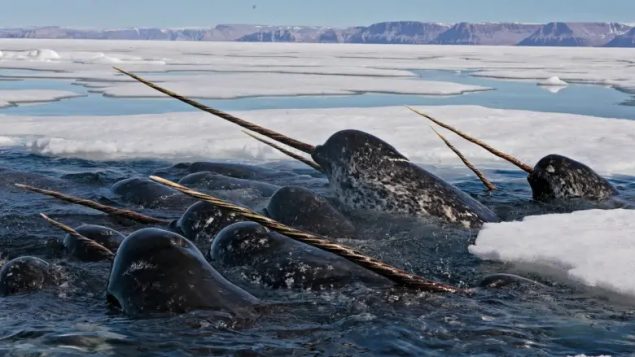In the not so distant past the Arctic seas were dangerous, mysterious places that took the lives and the ships of many explorers. Now with climate change, the ice free season is lasting longer and longer and enabling tourist vessels and cargo ships to pass through with ease.
A new study shows that as the ice retreats, and shipping increases, a variety of Arctic marine life is threatened.
The study is called, Vulnerability of Arctic marine mammals to vessel traffic in the increasingly ice-free Northwest Passage and Northern Sea Route (abstract HERE)
Lead author Donna Hauser of the University of Alaska, looked at 80 different populations of beluga, bowhead whales, narwhal, seals, walrus, and polar bears and their potential for being affected by increased ship traffic in September when both migration and ship traffic would be at their highest.
The study found narwhal and whales would be the most adversely affected, seals and polar bears the least.

The study looked at the situation in the month of September only when shipping and migration would be at their height. Arctic sea-ice cover in September has retreated by 14 per cent per decade since 1979. However, projections suggest the Arctic will be ice-free during the summer by 2040, enabling even longer shipping periods. (David Goldman/AP/Canadian Press)
Lancaster Sound at the eastern end of the Northwest Passage would become one of the “pinch points” along with a section of Russia’s central Arctic coast.
For example, at some points in the year, 90 per cent of the world’s narwhal are in Canadian waters, and 75 per cent spend summers in the Lancaster Sound.
Hauser notes that shipping affects whale’s habits causing them to dive more frequently, or change course, or even stop moving through the water. It is also suspected that the noise affects their ability to communicate and increases the potential for ship strikes.
While polar bears would be the least affected in September, as they’re typically on land at that point, this too might change. Although not factored into this study, as climate change is increasing the ice-free season putting pressure on the bears, ice breakers creating routes to extend a shipping season could cause much greater stress on both seals, and bears.
While shipping is currently not a major concern, Hauser says the study is meant to provide some background to begin thinking now of how to plan for greatly increased shipping which is going to come.
additional information-sources







For reasons beyond our control, and for an undetermined period of time, our comment section is now closed. However, our social networks remain open to your contributions.